Self-denial of heritage in Maldives sends message to Establishments
[TamilNet, Thursday, 16 February 2012, 23:49 GMT]A group of Maldivians who stormed into the National Museum at Male on the day Mr. Mohamed Nasheed resigned from the office of president, destroyed artefacts of pre-Islamic heritage on display. The whole pre-Islamic history is gone and the loss to the nation’s archaeological legacy can never be recouped, The Economic Times said Tuesday, citing Maldivian officials. Most of the artefacts, including statues smashed, belong to Maldivian Buddhism dating between c. 6 – 12 century CE. The vandals destroyed not only the religious heritage but also the literacy heritage as well, because many of the 30 odd coral-stone artefacts destroyed were inscribed with the earliest written records of the country. While media is busy on comparison with Afghanistan, the question arises why the situation deteriorated in Nasheed’s time, when the heritage had found no qualms during Gayoom’s long rule.
All political parties in the Maldives, including the Islamic party Adhaalath that is opposed to Nasheed’s ‘anti-Islamic’ policies, have condemned the destruction of heritage displayed in the museum.
However, many among the political and social circles in the Maldives point to certain recent proceedings, resulting from Nasheed’s ‘unholy’ alliance with Sri Lanka’s Rajapaksa and with the powers hovering around the country in greed and competition, for the spurt of perversion and enragement in the ultra-religious camp.
The direct inspiration for laying hands on the museum display comes from Sri Lanka’s Rajapaksa installing a lion statue at Addu atoll in southern Maldives during the SAARC summit and people of the religiously sensitive atoll destroying it within the same week, declaring it as un-Islamic.
For reasons wondered at by many even in the ruling circles of the Maldives, Nasheed bracketed him with Rajapaksa from the very beginning of his rule, by endorsing the genocidal war in Vanni and by over-stretching him in shielding the Rajapaksa regime in the international human rights platforms. Business, military and personal reasons are said to be behind the alliance of Nasheed and his ministers of defence and foreign affairs with the Rajapaksa regime. Nasheed has now sent his family for safety in Colombo.
Even though the Maldivian Buddhist heritage belonged to its own genre, manifesting from the maritime traditions of Mahayana and especially the Vajrayana School coupled with local beliefs, an image has been created by Colombo-based colonial Orientalists and later by Sinhala academics that Buddhism had gone to Maldives from Sri Lanka.
Maldivians in general were made to naively believe that Buddhist heritage found in their country came from the Sinhalese. The sense of belongingness to heritage was thus largely missing.
No wonder, the Sri Lanka connections of Nasheed and the power-operations cum political culture emanating through Colombo reminding the colonial times when Maldives was a protectorate of British Ceylon, made a section in the Maldives to show the anger against Nasheed and the forces behind him on the ‘Buddhist’ heritage in the museum.
Meanwhile, an untimely stand taken by the West in pressurising Nasheed’s government to do away with the 100 per cent Islamic status of Maldives in the constitution became counterproductive, making a section to simmer with anger, commented a veteran politician in the country.
At the moment, Saudi Arabia and the Maldives are the only countries that have such a proclamation in the constitution.
But the Maldivians are a tolerant people in culture and practice, compared to many countries that have verbally declared ‘multiculturalism.’ Unnecessary pressure, especially coming from the West, precipitated issues, the politician said.
The US government’s secret negotiation with Nasheed to accommodate Muslim prisoners from Guantanamo in Maldives was an added issue, said a parliamentarian. Nasheed’s agreement to the proposal was cancelled only when China intervened and gave just 10 minutes time for Nasheed to decide against it, the parliamentarian further said.
According to a former Maldivian diplomat, the US Asst. Secretary of State Robert Blake had led Nasheed’s government into many of the pitfalls.
Israel was recently accommodated in Maldives to do ‘agricultural development’ in one of the islands.
Nasheed’s government that was depending on the West for the ‘democratic’ transition three years back had to yield into exploitative demands as payback, against the sentiments of the people and spirit of democracy, is a general opinion in the country.
But much of the public anger in recent times is expressed against India, especially after an Indian corporate with New Delhi’s backing taking over the International Airport of Male on lease. The Indian corporate, GMR, was proposing 25 US dollar airport tax, besides snatching away the alcohol business from local people. The corporate angered the public when its spokesperson arrogantly said that they would not take away the airport along with them to India.
China was equally in the fray, proposing the monopoly of electricity supply to the capital and the airport. China recently opened an embassy in Male, to time with the SAARC summit, and Chinese tourists are systematically encouraged to fill in the resorts of Maldives suffering from the recession in the West.
However, public opinion in the capital is not as hostile to China as it is towards India. China is professional in its dealings, the elite in the country feel. The anger towards the New Delhi Establishment reflects in harassment faced by Indian working population in the country. The Indian High Commission in Male displays a notice on its walls asking its people not to go out wearing jewellery.
A large resort in Maldives like The Sun Island used to accommodate around 900 foreign guests on any given day. Another 900 people, mostly foreigners work in the resort. More than a hundred islands, big and small that have become resorts in the country, have demography of this nature. Besides, many more thousands of foreigners work in the capital and in the other inhabited islands. Considering the native population of the country, which is around 350,000, about another half of this number are foreigners who stay in the country on any given day.
There are several reasons for the discontentment among the people of Maldives. Most important of them is the national wealth not reaching the people in an equal way. Many feel that outsiders or a few in the country swindle the national wealth. The recent economic crisis, fall in tourism and devaluation of currency have triggered off a number of livelihood problems in the economically fragile country.
Religion was always a way of expressing discontentment against regimes in Maldives. It was also a way of asserting to identity when threat is perceived from outside or when materialism threatens culture.
While Maldives was opening up to the outside world in a drastic way in the last 40 years, people were covering them up more and more. Long beards and buruhas (head cover of women) were rarely seen even in the remote islands of the country 25 years back. Today, very few women go out without a buruha. While adherence to religious symbols were on the escalation on one hand, drug and brothels never heard of before, appeared on the other hand.
Nasheed’s supporters accuse some West Asian countries for funding and inspiring ‘fundamentalism’ in Maldives. They also accuse such forces for creating unrest now. The story has some truth, as there were some organizations that funded poor sections of the society on condition of growing beards and wearing bruhas. Education in certain countries also had their impact.
But it is the West’s brutal war against the Islamic world that has made a big impact in the thinking in Maldives in the last couple of decades. There is a strong section of elite that sees the unjust in the powers of the world.
Gayoom was extraordinarily careful in his foreign policy. But Nasheed stepped out to identify him with powers. It would have been ideal for a country exclusively depending on tourism had it opted out of power games.
At a sensitive time of international situation, and a couple of weeks before his downfall, Nasheed’s party in Maldives unwisely challenged the political opponents, asking whether they wanted Afghanistan Islam or Maldivian Islam. Nasheed at that time was invited by Rajapaksa to preside over a military parade in Sri Lanka.
The National Museum of Maldives was established in the 1950's and it was housed at a remaining part of the old palace of the sultans of Maldives. In Gayoom's time, the management of it came under the National Centre for Linguistic and Historical Research (NCHLR), which was also founded by him to function directly under the president’s office.
Neither the pre-Islamic heritage stored in a corner of this old museum, nor the excavations conducted by Gayoom’s government with Norwegian assistance at Nilandhoo and Kaashidhoo, revealing Buddhist monuments have never raised any qualms then, even though people in the islands sometimes had the habit of destroying whatever ‘un-Islamic’ found in their islands. The Male government, through strict instructions to the island-chiefs, was acquiring such artefacts. Whatever pre-Islamic artefacts found stored in the National Museum were obtained in that way.
During Gayoom’s time, the pre-Islamic heritage has also found a due place with illustrations in the school textbooks.
With democratic changes and Nasheed coming to power, the NCLHR was dissolved. History went to the newly created university. An institute was created for language studies and the heritage part, along with the National Museum, went under the ministry of tourism.
An impressive new museum building, presented by China, was opened just a few months back.
It was by that time objections were raised by some, against prominent display of the pre-Islamic heritage. In fact, they were displayed in the ground floor, the first hall a visitor may see.
The Economic Times cites the museum curator and an academic saying that in recent years some conservative Muslims suggested the removal of the artefacts.
“The collection was totally, totally smashed,” Economic Times, cited the curator, who added that except two or three statues, the rest were beyond restoration.
As the shards are swept and locked away, scholars and museums of a number of countries have offered help in the restoration, the curator said.
There was a time, when a bullet-ridden motorbike was kept in the national museum as a heritage of the 1988 coup. The restored pieces or even the shards themselves are a heritage to be preserved, to tell the posterity of the present times, commented an academic in Male.
Of over two thousand years of Maldivian people’s heritage, whatever little that escaped centuries of bias and were stored in the museum, may not be of much global importance or even regional importance, but they are of prime importance only to the people of the Maldives, who as a microscopic nation need them to assert to their long, unique identity and place in this world, he further commented.
The brutality of the defence forces of Maldives today is something that was never seen before, people of the country wonder. This is an irony for a country that just three years back transformed from guided democracy to multi-party liberal democracy.
We live in times in which every uprising of people is hijacked if the people are not vigilant.
In the southern hub – maritime hub – of South Asia, people face an extraordinary situation today.
War, genocide, militarisation, displacement of people, animosities among nations, political and social turmoil – all are engineered ultimately to take politics away from people, for the benefit of new imperialism.
Extremism in the Establishments surpasses all the other extremisms.
When a people keep quiet for what happens to their neighbour, it will happen to every one of them in the region, one after the other.
While people of the Maldives should be awakened to what their government did and with whom it got aligned, when there was genocide in the neighbourhood, the nations in the immediate neighbourhood, especially in South India should carefully understand what is happening to the people of Maldives. The game is one and the same for the people of the region to understand and help each other, and to show solidarity in upholding political and social justice.
Related Articles:
26.12.11 Maldives President on SL trip tipped to endorse LLRC report
13.12.11 China announces Indian Ocean naval base in Seychelles
19.11.11 People of Maldives cut off face of ‘Sri Lanka Lion’
17.11.11 China timed SAARC summit to open embassy in Maldives
28.09.11 Maldives President thinks Sunanda Deshapriya a Tamil
28.09.11 Regimes in Sri Lanka, Maldives, forge questionable alliance
22.08.11 It is not mere corruption, but militarisation of corruption ..
14.07.11 USA, Sri Lanka co-host Security Conference in Colombo
07.05.11 Blake’s visit follows Maldives ditching UN panel report
07.05.11 Puzzle grows over piracy in Indian Ocean
18.12.08 Visit of 'strategic partners'
29.10.08 Wind of Change in Maldives
29.10.08 Anni heading for victory in Maldives
External Links:
| The Economic Times: | Vandals attack on the National Museum threatens archaeological treasures in Maldives |
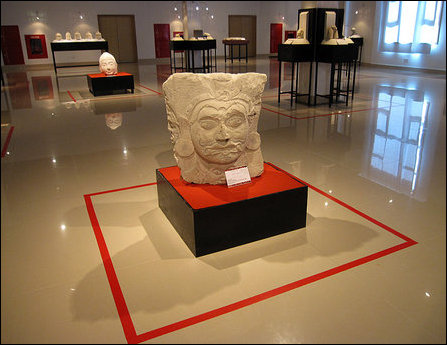
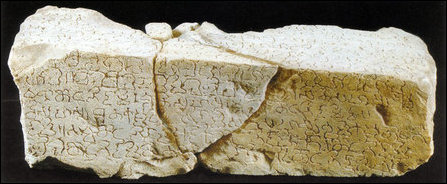
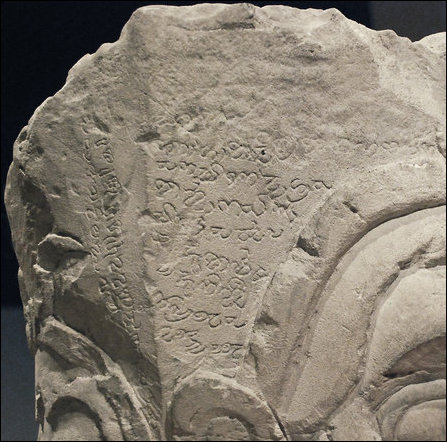
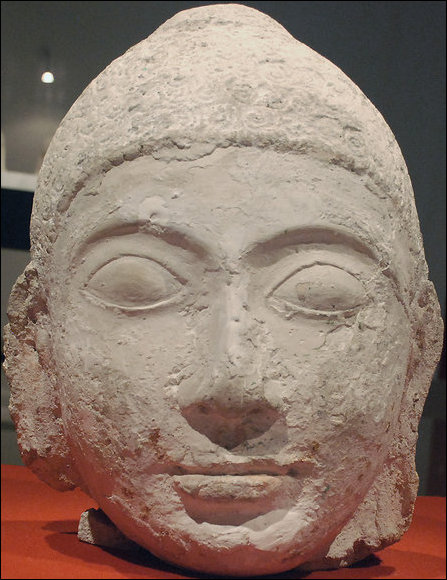
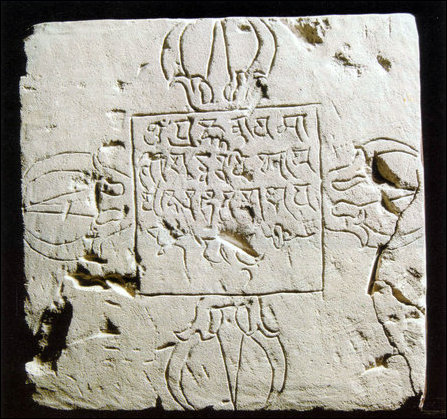
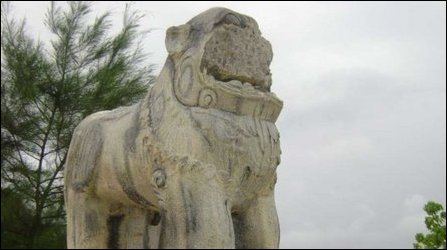
கருத்துகள் இல்லை:
கருத்துரையிடுக